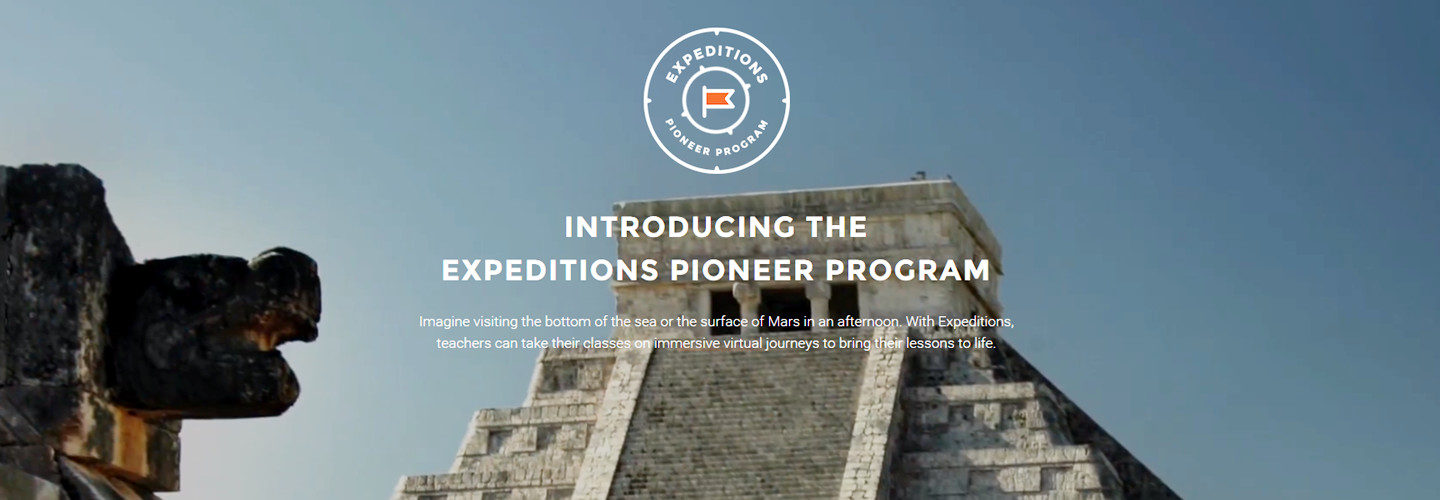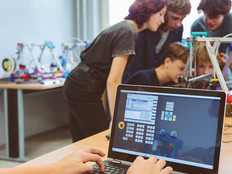Google Expeditions Brings Virtual Reality Field Trips to Schools Across America
Virtual reality technology is becoming more affordable and is breaking the boundaries of what students can experience within the walls of a school.
Historically, there have been two large barriers to providing students with virtual reality (VR) experiences: the price of the devices and the educational value of them. Google could solve both of these problems with the announcement of its Expeditions Pioneer Program, which brings the company's low-cost cardboard-based virtual reality device, Cardboard, to schools across the world.
"During the 2015/2016 school year, we’ll be bringing 'kits' containing everything a teacher needs to run a virtual trip for their class: ASUS smartphones, a tablet for the teacher to direct the tour, a router that allows Expeditions to run without an Internet connection, and Google Cardboard viewers or Mattel View-Masters that turn phones into virtual reality headsets," according to a Sept. 28 blog post by David Quaid, a software engineer with Google Expeditions.
Google Cardboard is at the tip of the spear for affordable, accessible virtual reality packages. It's a simple cardboard-based headset that costs about $15 and is powered by compatible smartphones. The device's construction is akin to a child's viewfinder toy, only it can display stereoscopic 3D environments. Google Cardboard has been around for a few years, and it's become the medium for the company’s VR foray into education — Google Expeditions — announced earlier this year.
Google product manager Ben Schrom described Expeditions as a social VR experience designed for classrooms. A teacher controls the experience with a tablet, which is then broadcast to the students’ devices. Using the tablet, the teacher can direct students’ attention toward points of interest, which appear as waypoints on the students’ viewers.
Schrom told EdTech that he sees the fun of VR emerging from shared social experiences.
“This is one of the few VR applications I know of that’s really doing a social thing. And it’s all about using it in the class, pointing to your buddy, ‘Look at that shark!’ We’re trying to create a group activity,” he said.
The Expeditions Pioneer Program is the company's next step toward making virtual reality easier to introduce to the average classroom. Select schools will be given the equipment and know-how to launch an immersive virtual field trip anywhere that has been photographed with a 360-degree camera.
Some locations Google has been previewing with the program include the Museum of Natural History, the Palace of Versailles, a coral reef and even the surface of Mars
Schools interested in signing up for the Expeditions Pioneer Program can do so on the official website.








